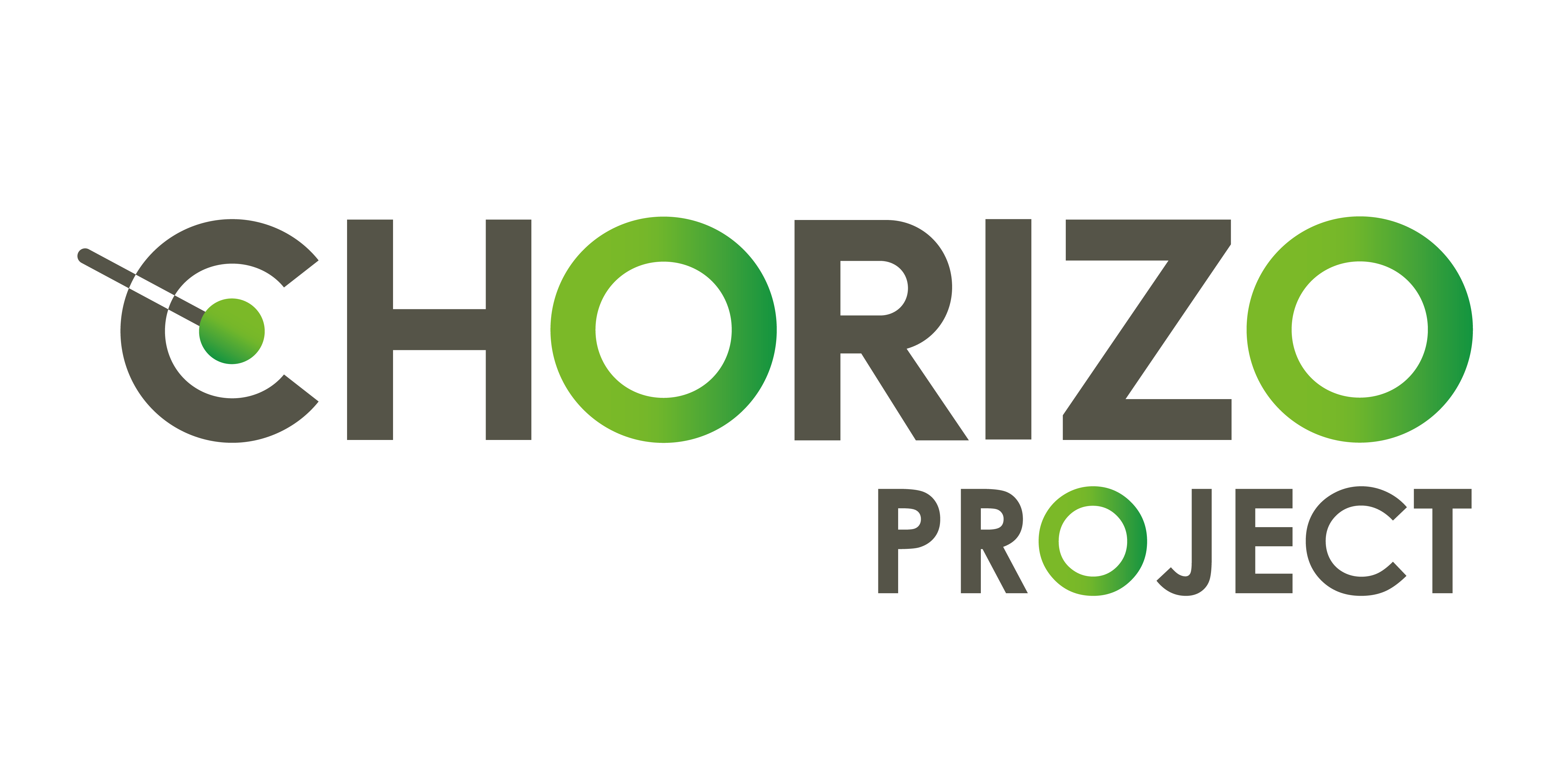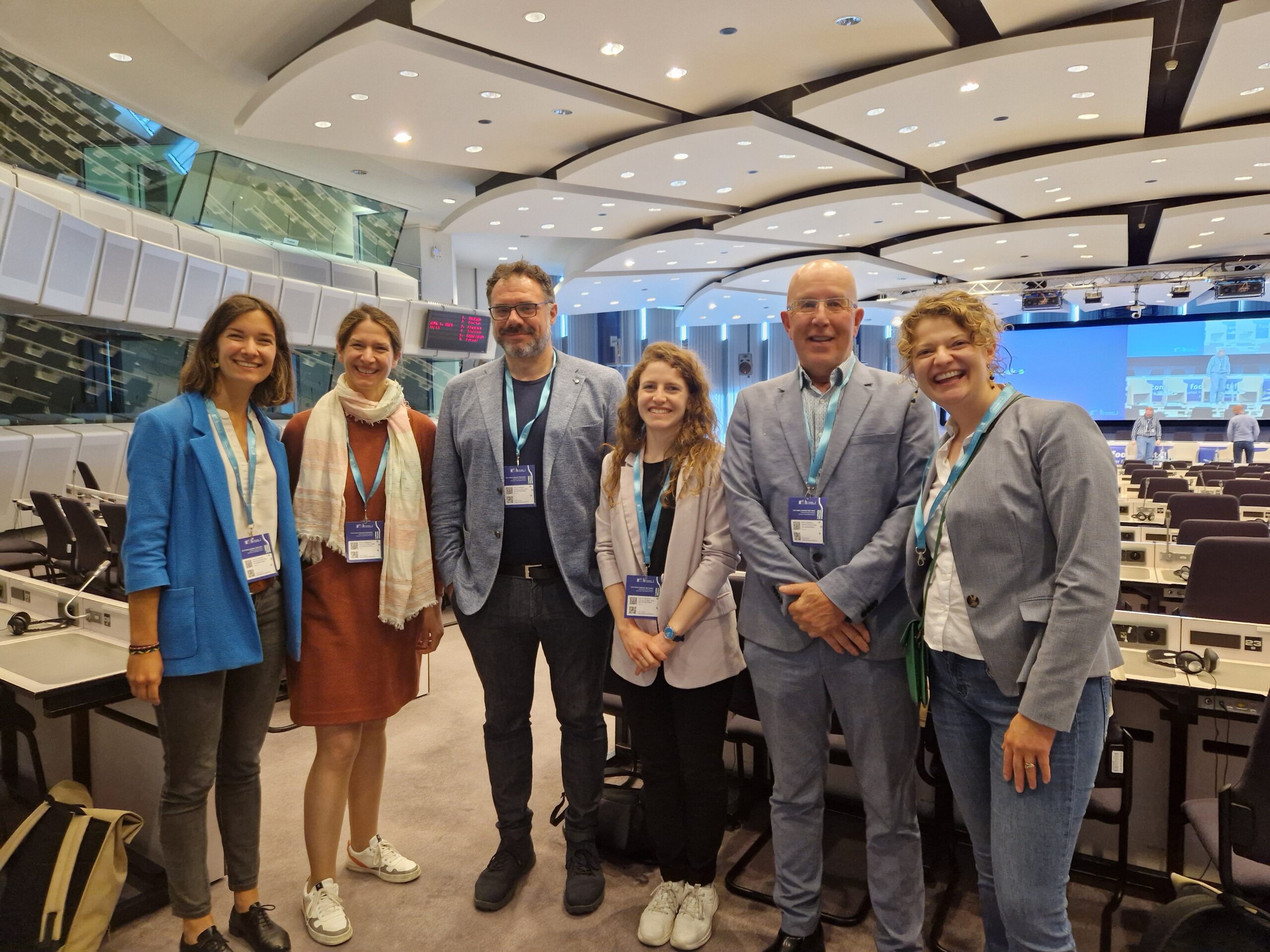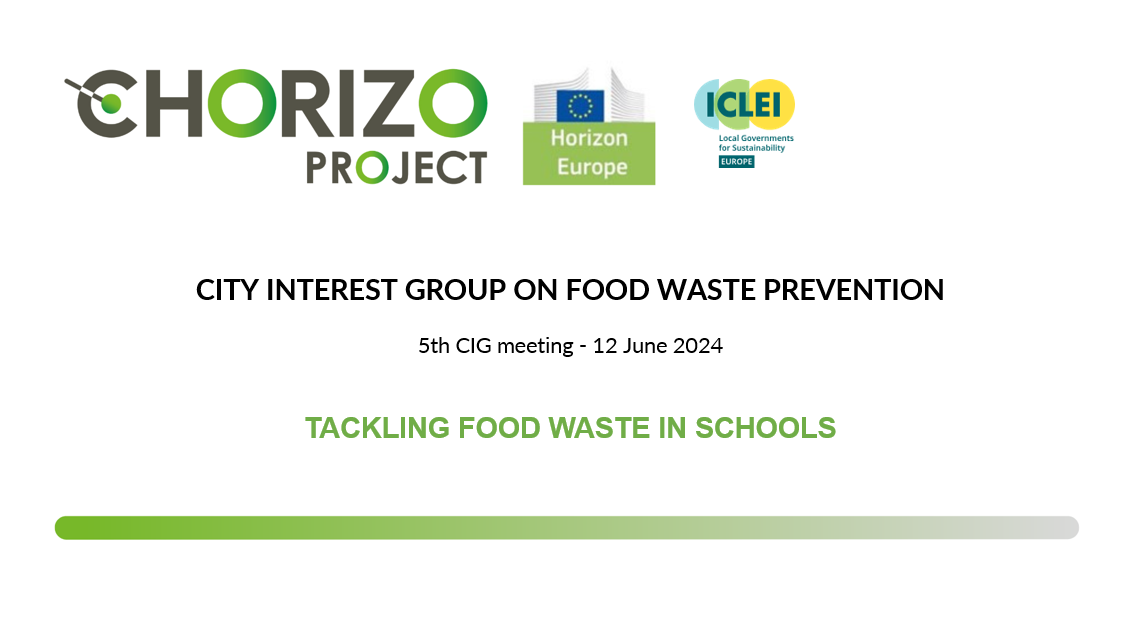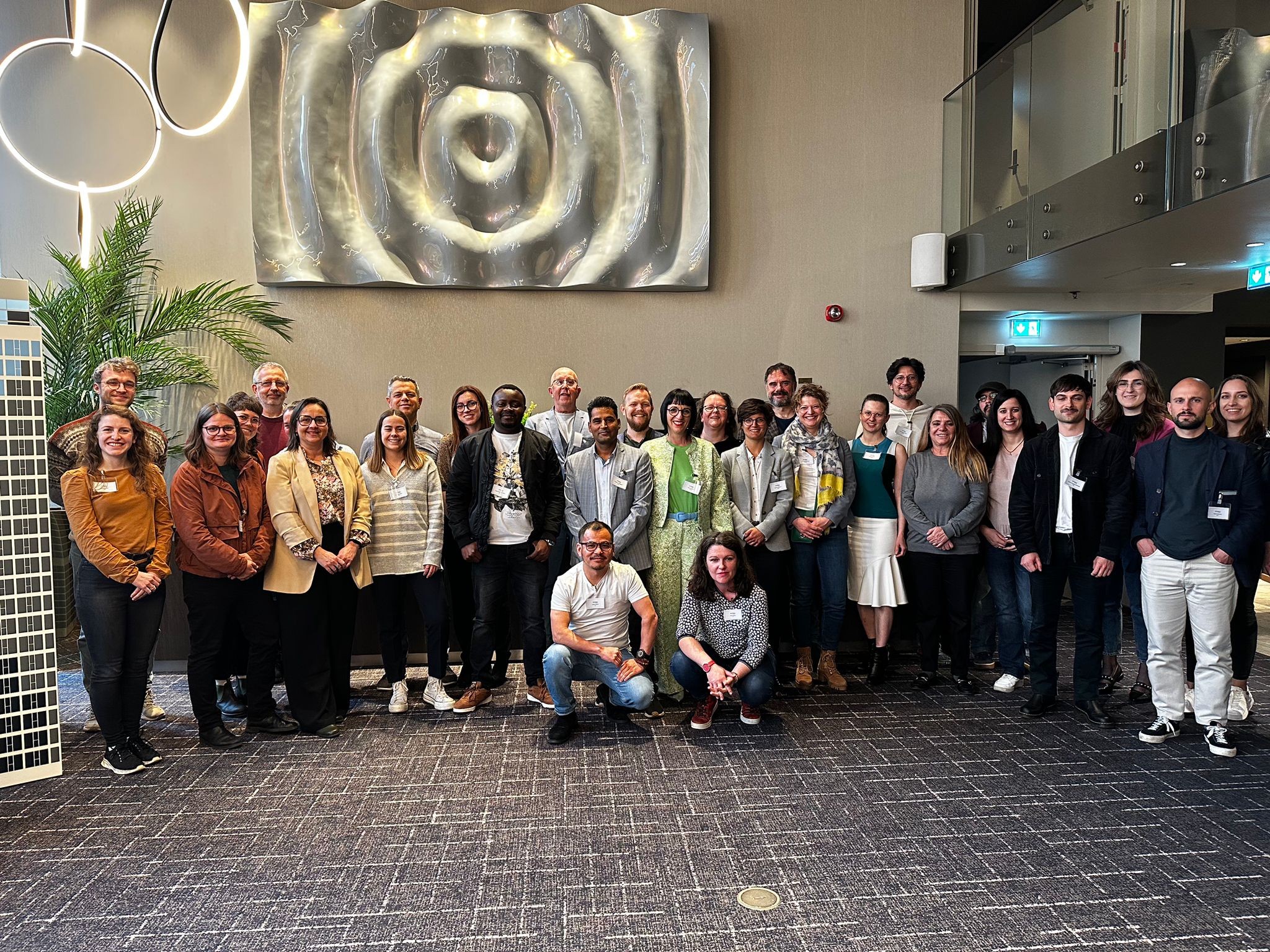Off we go! As part of CHORIZO, a City Interest Group (CIG) on Food Waste Prevention was officially launched on the 31st of May with the holding of the first webinar of a series to come. The CIG provides an opportunity to better grasp the realities of local government challenges tackling food waste throughout the continent.
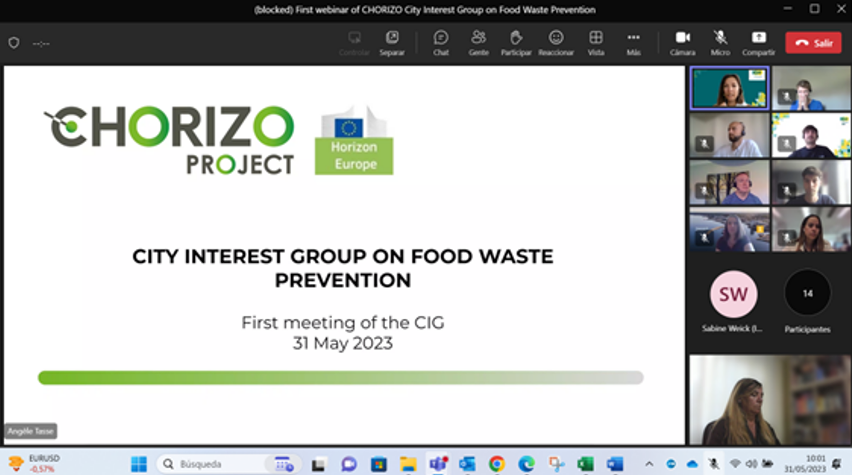
What is this City Interest Group?
Organised and coordinated by ICLEI – Local Governments for Sustainability, the CIG is a closed forum where local authorities come together in a series of webinars to exchange best practices and challenges related to food waste prevention, learn from project partners and external experts, influence the development of project deliverables, and test project tools and products at city level. City representatives are invited to share their experiences and exchange ideas with fellow participants, each time around a specific topic related to food waste prevention at local level.
The group includes a diverse range of cities, both in terms of size and geography: Antwerp (BE), Çankaya (TR), Copenhagen (DK), Helsingborg (SE), Lille (FR), Murska Sobota (SI), Porto (PT), Paris (FR),Murcia (ES), Ostend (BE) and Stuttgart (DE).
How can cities play a role?
Cities represent a unique locus for tackling food waste. They act as key nodes within the food chain, and thus serve as the backdrop for food waste generation in many settings: at home, in the hospitality sector, in retail, in food services, in schools, and through redistribution actions such as food banks. Local authorities, as governing entities at the municipal level, have the ability to influence food systems from various angles: through direct involvement in the food chain (e.g., public procurement, municipal markets, catering services, schools, etc.), but also through indirect actions that promote behavioural change among citizens and businesses (e.g., awareness raising campaigns and legislation). Food redistribution platforms, food waste reduction actions in municipal food services (schools), smart procurement (buying local, organic and seasonal), and the collaboration with private food services (e.g., implementing doggybags in restaurants) are the most common actions and initiatives implemented by CIG cities.
Which key challenges will the CIG address?
Preventing food waste requires engaging and mobilising a wide range of stakeholders, both within and outside the local authorities themselves. The CIG will explore the various settings in which food waste is generated, and will discuss effective multi-stakeholder approaches tailored to those. In that regard, participants will have the opportunity to learn from CHORIZO case studies, and project insights will be extrapolated to their local realities and reflected upon.
The CIG will operate at the interface between project insights and the needs and interests of cities, making both converge. Cities will benefit from CHORIZO deliverables and tools, which will be fed into the various webinars. Similarly, session topics will be tailored to the needs and concerns expressed by local authorities. So far, cities have identified the following challenges: difficulties in engaging relevant stakeholders, dealing with siloed municipal departments and multi-level governance schemes, and conducting effective awareness raising.
What are the next steps?
The first session featured an introduction to CHORIZO by project coordinators ILVO, as well as a presentation on the latest EU developments and food waste monitoring exercise by Hendrik Bruns, Policy Analyst at the Joint Research Centre (European Commission). Building on this introductory session, the next two webinars will take place in October and December 2023, on topics to be agreed on with the cities. The CIG will convene three times per year until October 2025.
